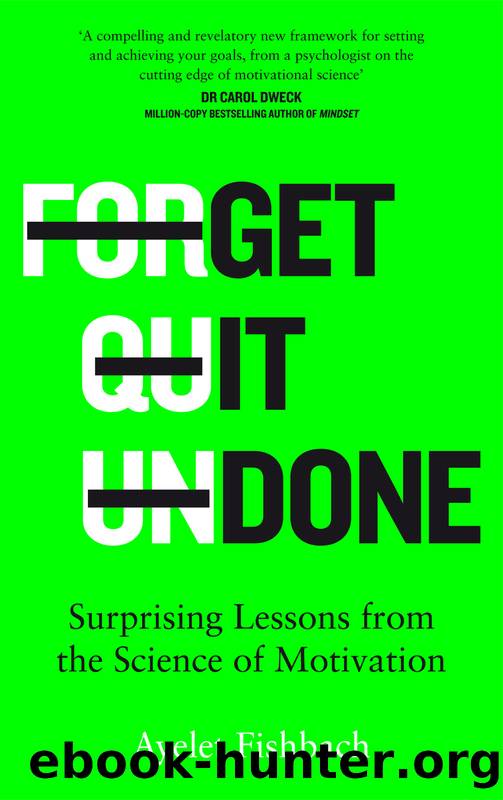Get it Done by Ayelet Fishbach

Author:Ayelet Fishbach
Language: eng
Format: epub
Publisher: Pan Macmillan UK
WHAT MAKES MEANS RIGHT
Pandas enjoy eating bamboo more than Iâll ever enjoy anything I have ever eaten or will ever eat. I know this despite not having any direct way of assessing panda bearsâ subjective enjoyment of their food. I know because no single food ever fully and finally satisfies my palate. The pandaâs diet, in comparison, consists almost entirely of the leaves, stems, and shoots of bamboo. For the panda, satisfying hunger (their goal) is associated with one activity only: eating bamboo. Bamboo is by definition the most delicious food the panda will ever eat. Nothing else comes close.
We humans, in contrast, have many foods that satisfy our hunger. And each of these foods also satisfies a host of other considerations, such as meeting our budget and impacting our health goals; our foods are both equifinal and multifinal. Given the number of associations between the foods we eat and the goals they serve, thereâs no single food we would happily resign ourselves to eating for the rest of our lives.
This is just one example of how having too many ways to satisfy a goal can result in not having a single way that feels totally right. By the principle of maximizing attainment, we look for activities that serve several goals, such as an exercise that also helps us get around. The problem with having one activity that serves multiple goals is that with each additional goal it serves, our perception that this activity is the ârightâ means for us decreases.
The mental link between a means (be it an activity, an object, a person, or a bamboo shoot) and a goal weakens the more other mental links exist for that means and for that goal. If a means serves several goals or if a goal has several means, the means-goal link is diluted. When the mental association between the path to the goal and the goal itself is weaker, the goal is less likely to come to mind when pursuing this path, and the path is less likely to come to mind when looking for ways to achieve the goal.
When the mental link is strong, an activity, an object, or a person may seem highly instrumental for achieving the goal. Suppose you canât think of a better way to exercise than biking. So biking is strongly related to exercise in your mind. But if you recognize that there are other ways to exercise that youâd like just as well (biking is equifinal), or that there are other goals you can achieve by biking (biking is multifinal), biking seems less instrumental for exercising. You can think of many other ways to stay in shape and also many other reasons to bike. As a result, your dedication to biking for exercise might dwindle.
Because of this dilution, we often forgo the principle of maximizing attainment in favor of âunifinalâ meansâactions, objects, or people that help us pursue one goal only and are therefore strongly associated with that single goal.
As you may recall, we had a very similar discussion about dilution in Chapter 3.
Download
This site does not store any files on its server. We only index and link to content provided by other sites. Please contact the content providers to delete copyright contents if any and email us, we'll remove relevant links or contents immediately.
Kathy Andrews Collection by Kathy Andrews(10521)
The remains of the day by Kazuo Ishiguro(7551)
Spare by Prince Harry The Duke of Sussex(4199)
Paper Towns by Green John(4169)
The Body: A Guide for Occupants by Bill Bryson(3802)
Be in a Treehouse by Pete Nelson(3213)
Harry Potter and the Goblet Of Fire by J.K. Rowling(3046)
Goodbye Paradise(2964)
Never by Ken Follett(2882)
Into Thin Air by Jon Krakauer(2702)
The Remains of the Day by Kazuo Ishiguro(2619)
The Genius of Japanese Carpentry by Azby Brown(2609)
The Cellar by Natasha Preston(2595)
Drawing Shortcuts: Developing Quick Drawing Skills Using Today's Technology by Leggitt Jim(2532)
120 Days of Sodom by Marquis de Sade(2439)
Architecture 101 by Nicole Bridge(2350)
The Man Who Died Twice by Richard Osman(2300)
Machine Learning at Scale with H2O by Gregory Keys | David Whiting(2292)
Fairy Tale by Stephen King(2071)
